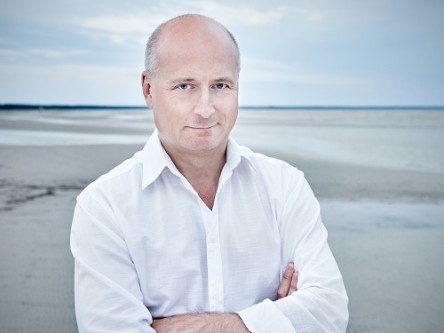 Switzerland Debussy, Rachmaninov, Brahms: Khatia Buniatishvili (piano), Tonhalle Orchestra Zurich / Paavo Järvi (conductor), Tonhalle Maag, Zurich.12.10.2018. (JR)
Switzerland Debussy, Rachmaninov, Brahms: Khatia Buniatishvili (piano), Tonhalle Orchestra Zurich / Paavo Järvi (conductor), Tonhalle Maag, Zurich.12.10.2018. (JR)

Debussy – Prélude à l’après-midi d’un faune
Rachmaninov – Piano Concerto No.2 Op.18
Brahms – Symphony No.2 Op.73
Debussy’s Prélude à l’après-midi d’un faune was his first major orchestral work and an instant success – the audience at its première demanded it be played as the encore. It was a breakthrough in both style and genre; Boulez even considered it to be the beginning of modern music. Järvi conducted the piece with finesse, the glistening golden flute of Sabine Poyé-Morel adding molten honey to the mix, finger cymbals helping to conjure up an almost sensuous dream.
Rachmaninov was a romantic to his core. Some consider his second Piano Concerto a masterpiece, others consider it low-brow schmaltz. It could, of course, be both. It certainly makes for very easy listening. One of Khatia Buniatishvili’s idols is Martha Argerich and they share a penchant for flamboyance and fast speeds. Buniatishvili tosses her long black mane out of her face to see where the keyboard is. Her impetuous approach has its definite virtues but also carries risks. Järvi occasionally found it hard to accompany her in time. As Järvi put it in his after-concert talk, Buniatishvili is unique, all-giving and tough on herself, but plays with all her soul. Her playing is therefore not for purists, but there was no denying the splendid virtuosity, especially the opening of the final movement – the performance had its decided thrills. Järvi conducted with pace and muscularity. Mike Reid’s clarinet caught the ear with his tender contribution in the Adagio.
And so to the Brahms, his Second Symphony. Järvi dispensed with a score, and started the work with a marvellous lightness of touch before turning up the urgency. The second movement too had ample Brahmsian weight, whilst the last two movements delighted with their joyousness (in the Allegretto) and spirit in the Finale. Simon Fuchs was the splendid Principal oboe, ably aided and abetted by Kaspar Zimmermann, his fellow oboist for the evening. Järvi bounced along throughout, clearly enjoying himself.
By way of a full rehearsal for the upcoming tour, he served us more Brahms, two Hungarian Dances, Nos. 1 and 3. Great fun.
After the concert, he told those who had stayed behind, that he felt extremely fortunate to be chosen to be in charge of such a fine orchestra. He said he often heard excellent musicians, but the members of the Tonhalle Orchestra seemed to him to have added qualities – harmony amongst themselves and a dedication to and focus on the music. He said he greatly looked forward to taking them on tour to Asia later this month (details below) and getting to know them better on a personal level.
Järvi stayed behind, after his talk, to sign autographs and CDs, to relax and be photographed with some young Estonian musicians, and to chat at length with anyone who approached him. That is quite a break in tradition from his more reserved predecessors and his easy charm, sense of fun and deep bass voice has already won the hearts of the locals.
The orchestra’s Asian tour takes in Beijing (24 Oct.), Shanghai (26 to 28 Oct.), Taipeh (31 Oct.), and Seoul (2 and 3 Nov.). Performances include Liszt’s Second Piano Concerto (with Zee Zee as soloist), Rachmaninov’s Second Piano Concerto (with Khatia Buniatishvili), Mahler’s Fifth Symphony and Brahms’ Second Symphony. Järvi has chosen palatable fare for the Asian audiences and the concerts should take them by storm. If you happen to be reading this review in any of those cities, don’t miss.
John Rhodes
